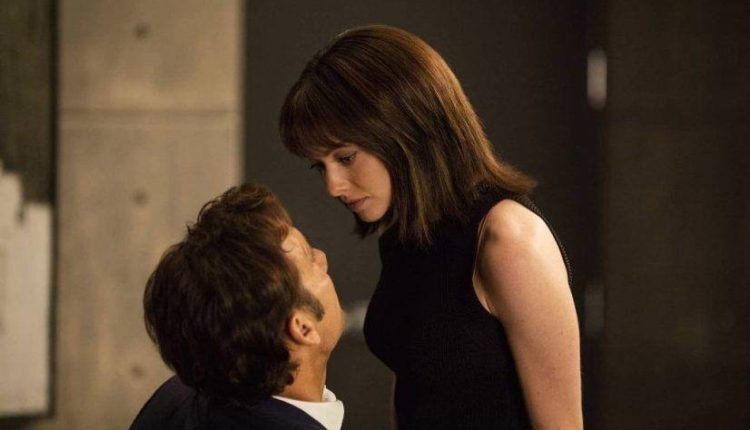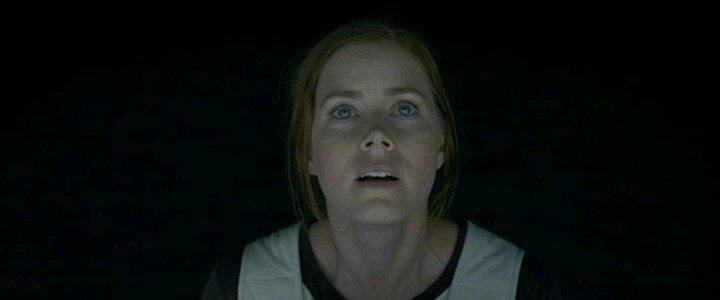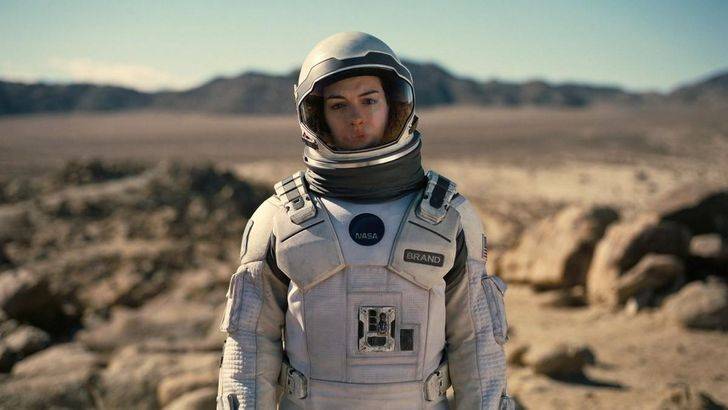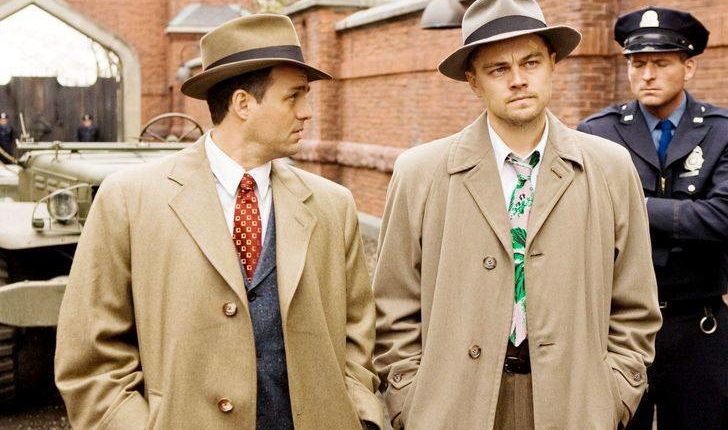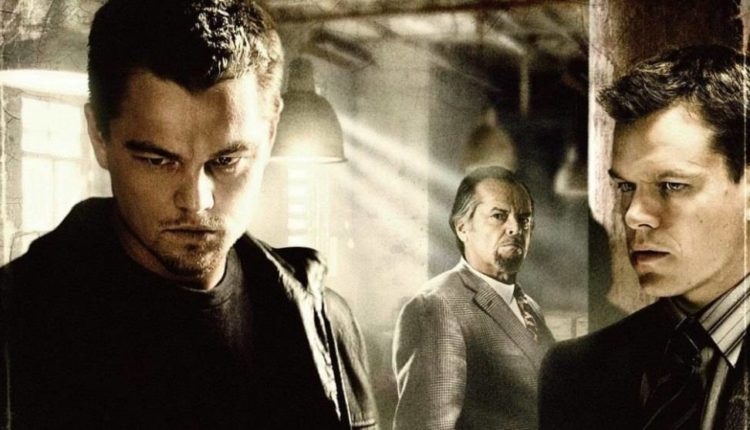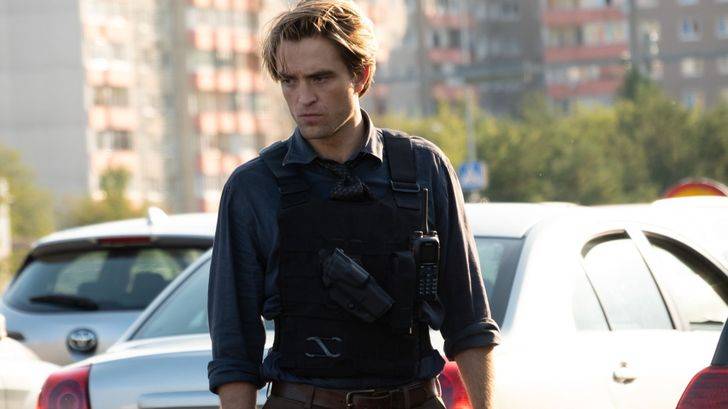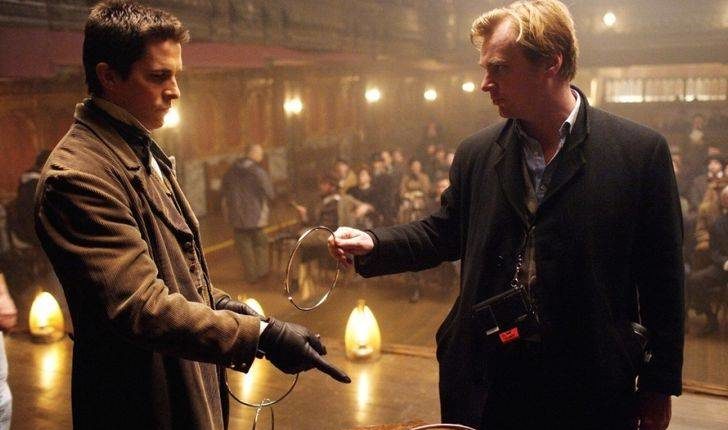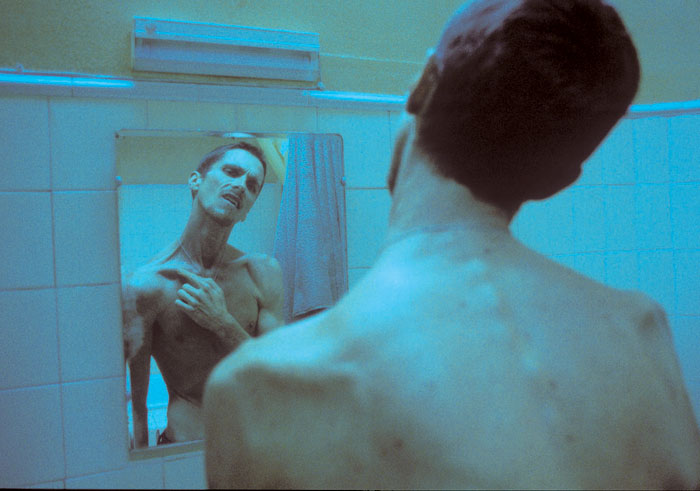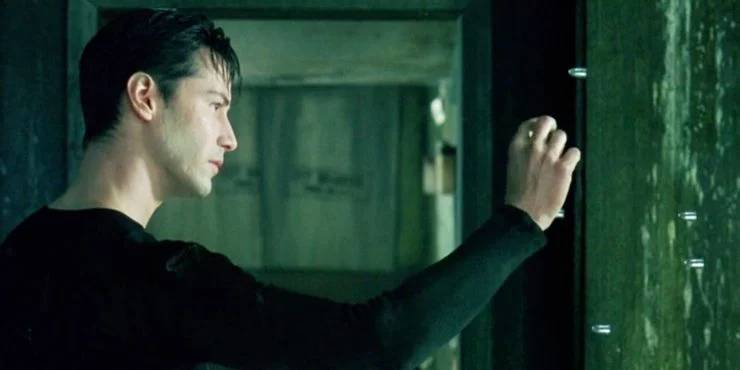Even after more than a decade, Inception remains one of the most fascinating films ever filmed. With mind-blowing mental conceptions and visuals, as well as expertly-delivered explanations to describe these concepts and imagery, Inception takes viewers on a thorough tour of our own mind – an unconscious world that influences our conscious reality.
Don Cobb (Leonardo Dicaprio) is a corporate espionage expert tasked with forming a team capable of inception – the invasion of a person’s dream state to plant an idea for organic growth within the mind. The ability to manipulate the mind’s interpretation of its imagined reality is a highly sought-after skill among the wealthy elite, and it comes with a significant payoff, but perhaps even greater ramifications. Cobb agrees to participate on this final mission, one that will put his sanity to the test, with memories from his own mind threatening to jeopardize the mission and his squad’s lives.
The films on this list also bend and shift the bounds of reality, which may cause audience members to engage in existential pondering – and existential pondering is a specialty of Christopher Nolan’s, so it’s no surprise that so many of his films made the cut. Of course, they aren’t all Nolan films, but they are all visually stunning and have that slickness that makes Inception so alluring. The films in this collection are comparable in some ways, whether it’s through recurrent actors and other behind-the-scenes individuals, or ideas and notions that question the nature of reality. So, if you enjoyed Inception’s mind-bending experience, be ready for 12 more intelligent flicks to watch next.
Anon
Anon is a gripping cyber-thriller with a hacker-flair from The Matrix and a heist-vibe from Inception. The 2018 film stars Clive Owen and Amanda Seyfried in a sensual cat-and-mouse game set in a future city where society is organically linked to technology and the internet – the “ether.”
Sal (Owen), the guy in the suit, is a municipal investigator who relies entirely on the system’s identification and remote viewing capabilities to fight crime. Sal must go undercover to track down the hacker/murderer and bring them to justice when a serial killer terrorizes the city, murdering wealthy socialites and hacking into the ether to eliminate visual proof. That is, assuming Sal’s life isn’t compromised first.
Arrival
Arrival is a film featuring Interstellar-level cerebral concepts that deals with issues of space travel, subtle perceptions of time, and unique viewpoints of language and linguistics. Amy Adams stars in Denis Villeneuve’s film adaptation of Ted Chiang’s novel, and the plot is similar to Interstellar in that it explores Einsteinian interpretations of human existence, particularly as they relate to illusions of the past, present, and future. Arrival, like some of the other entries on this list, does not adhere to a particular schedule. At least not in the way that we humans equate time with linear-based order. In a nutshell (eggshell?) that is Arrival’s time-bending concept.
The film’s egg-like spacecraft have a megalithic look that suits the film’s massive cityscapes, and the film’s mind-bending approach to time, language, and even gravity is likewise pretty out there. Arrival, like Inception and Interstellar, is a picture that makes you think, the kind that you might appreciate even more on a second viewing. So, if you’re up for stretching two terrific movies into four, go see Arrival after Inception.
Interstellar
Interstellar is a mind-blowing film that will surely inspire armchair philosophers of the existential variety. The Endurance is a 2014 film about an interplanetary spacecraft and crew tasked with traveling into a black hole in search of habitable planets for the inhabitants of Earth. Interstellar, like Inception, explores the nature of reality and time, especially in relation to Einstein’s Theory of Relativity, and what it means for individuals who travel through unexplored space and time. It’s a little metaphysical, isn’t it? The film’s exquisite explanations of scientific ideas and theories are only revealed through their amazing visual renderings, with Hans Zimmer’s music elevating the entire experience. If you liked the architectural building in Inception, you’ll enjoy the world-building components and depictions of entire planets in this film.
And we’re back in touch with Matt Damon! When two of my favorite films are out at the same time, I am overjoyed. In Interstellar, Matt Damon is part of a stellar cast that includes Anne Hathaway, Casey Affleck, Jessica Chastain, and even Michael Cain in an unexpected cameo. Michael Cain’s involvement should come as no surprise, given that this is a Christopher Nolan production.
Memento
Tenet isn’t the first time Nolan has turned the screenplay on its head; in fact, much of Tenet’s mechanics and aesthetics are reminiscent of Nolan’s debut film, Memento, from 2000. The film opens with Guy Pearce, a bright blonde, firing a gun backwards — rather, to be more precise, with him firing the gun while the action is played backwards. With the first shot, a polaroid develops backwards. Memento is a classic Christopher Nolan “man in a suit” picture, with Pearce’s Leonard seeking vengeance and answers in the wake of his wife’s tragic death.
It’s bad enough that police disagree with Leonard’s version of events the night his wife was brutally murdered, but Leonard’s mental “condition” following the incident makes matters much stranger. Because Leonard is unable to form new short-term memories, he can only recollect his life up until the night his wife died. With the use of a handy, if flawed, technique of instant polaroid photographs and permanent body tattoos to leave oneself clues, Leonard develops a basic skill to track down potential suspects who were overlooked by authorities. Memento, like Inception, delves into the concept and phenomenon of false and distorted memories while also leaving much to the imagination. Memento’s ending, on the other hand, is only the start, and vice versa. Memento is a great film to see if you’re looking for a cinematic mind-loop like this.
Paprika
The conscious and unconscious worlds of those engaged – the folks controlled – swiftly become jumbled when a therapist’s equipment for entering their patients’ dreams is stolen. Chiba, a young and brave researcher, is tasked with penetrating the deceptive reality of the dream world and putting things right. With the support of her small group of allies, would she be able to save humanity?
Paprika is a 2006 Japanese anime film that is as as (if not more) visually stunning than the others on this list. Paprika is a forerunner to Inception, and it deals with similar topics such as dream manipulation, technological interference, and even mind control. If you liked the plot of Inception, you should absolutely see Paprika.
Self/less
Self/less, starring Ben Kingsley and Ryan Reynolds, is a smooth, sensual, and unappreciated 2015 film. Damian, a New York City real estate pioneer and corporate elite leader who is aging and gradually failing, is played by Kingsley. Damian undergoes a cutting-edge, top-secret procedure in which his consciousness and memories are transferred to the unanimated body of a younger donor, feeling that he still has a critical task to complete (Reynolds).
Self/less, like Inception, is about a dying, wealthy man making life-or-death decisions centered on a strained parent-child relationship. Corporate elites like Damian, like the protagonists in Inception, might experience lives within lives as a result of corporate body-hacking, which inevitably leads Damian to a realization of his reality he could never have imagined. In addition to the fast-paced plot and action of Inception, Self/less has a stunning city location, high-tech themes, and – you got it – plenty of males in suits.
Shutter Island
Shutter Island is significantly darker than Inception and generates the visceral reaction that its title indicates. The film is based on Dennis Lehane’s 2003 novel of the same name and features Leonardo Dicaprio, Ben Kingsley, and Martin Scorsese as recurrent characters from the list. The disappearance of a patient from Ashecliffe Hospital, a hospital for the criminally insane on the rainy and desolate Shutter Island outside of Boston, is being investigated by US Marshal Teddy Daniels (Dicaprio). Daniels has a personal connection to this case, as one of the island’s most mysterious patients may hold the key to uncovering the truth behind Daniels’ wife’s tragic death – a truth that calls into question everything Daniels believes about himself as an officer, WW2 soldier, and husband, prompting a new type of investigation into just what he’s doing on Shutter Island in the first place.
Shutter Island, like Inception, explores the concept of implanting an idea into someone else’s head, and also depicts Daniels having dreams inside dreams. Teddy Daniels, like Leonardo DiCaprio’s Cobb in Inception, is haunted by his dead wife’s memory and is influenced by it. The ending of Shutter Island, like the ending of Inception, may be open to interpretation, leaving a discerning viewer of the film wondering if Teddy Daniels was truly aware of the true implications in the final scene. The imagery of Shutter Island is marvelously dirty and dismal, and the musical accompaniment ominously fits the tense probe into the institution’s damaged brains. For trivia buffs, there’s an added connection: the music sampled at the beginning of the film comes from the soundtrack of The Shining, the 1980 film based on Stephen King’s novel and starring Jack Nicholson. Nicholson would later feature alongside Dicaprio in The Departed, which is the next picture on our list.
The Departed
The Departed, another Boston-based cop thriller that is arguably the least overtly Inception-like picture on our list, continues our look at the Scorsese-Dicaprio-Nicholson relationship. The Departed is a dramatic crime thriller in the vein of Inception, with plenty of double-crossing, spying, gunfire, and suits. It is, however, one of the list’s more raw and horrific flicks. If you have sensitive sensitivities, be prepared for a barrage of f-bombs, exploding headshots, and even more f-bombs.
The Departed stars Leonardo Dicaprio, Jack Nicholson, Matt Damon, Alec Baldwin, Mark Wahlberg, and other noteworthy actors, including the aforementioned Leonardo Dicaprio and Jack Nicholson. The dialogue alone emphasizes the significance of the film’s Boston setting, and I can’t get enough of Wahlberg’s hilarious performance in this film, in which he steals every scene he appears in. If you liked Inception’s psychological mind games, you’ll adore The Departed. What about the last few minutes of the movie? Make an effort not to let your jaw hit the floor.
Tenet
Tenet has a similar feel to Inception. Indeed, I believe it aims to be the next Inception. However, it has that “slick” air – the cool Nolan-esque characteristic of brilliant concepts, gorgeous imagery, big orchestral soundtracks, and, let’s face it, males in suits. Tenet is undeniably a “dress-up” picture (as are many of the movies on this list). It’s also a puzzle, a palindrome in more ways than one, and a complex film maze. Tenet, like the spelling of its name, is a palindrome: it has the same composition forward and backward, which is a wonderful touch given the film’s time-inversion premise. The film’s history and structure are essentially reversed, with the second half of the film playing backwards.
The heroes of Tenet – or The Protagonist, as the main character is described to – employ technology to manipulate time itself, as contrast to the characters of Inception, who manipulate time through manipulating a person’s dream state. While Tenet lacks the emotional depth and character connection that made Inception such a timeless classic, existentially mind-bending themes and Nolan’s particular flair more than make up for it. Tenet is a must-see for everyone who enjoyed the fast-paced plot and corporate espionage backdrop of Inception.
The Prestige
When you think of intellectual films like Inception, a historical movie set in the late 1800s may not immediately come to mind. The Prestige, on the other hand, is a foregone conclusion that it belongs on our list, with Christopher and Jonathan Nolan behind the scenes and Christian Bale and Michael Cain on screen together before their Batman days. Hugh Jackman, who leads the cast, and David Bowie, who plays Tesla, are not to be overlooked. Nikola Tesla, the energy genius, is played by David Bowie.
Bale and Jackman play dueling magicians who continue to dazzle both onscreen and in real life audiences by presenting narrative twists and layers of trickery, always driving their rivalry towards dangerous, violent conclusions. Yes, Nikola Tesla, a real-life historical figure, is skillfully incorporated into the plot. For the reveal at the end of the movie, imagine my hands performing a slow-motion explosion movement around my head. The film’s environment and imagery are stunning, with the attention to detail in the era being particularly intriguing. The Prestige is a terrific film for undetected cerebral entertainment.
The Machinist
Christian Bale makes another appearance on our list in the bleak 2004 film The Machinist, in which he plays Trevor Reznik. Bale is known for drastically altering his appearance in order to prepare for a role, and this is one of the most noteworthy examples. Reznik, played by Bale, is a frail, depressed insomniac who works for a pittance as a factory machinist. According to Reznik, he hasn’t slept in a year. As the audience can see, things are starting to go bizarre. Trevor Reznik, like Leonard in Memento, tries to maintain control of his world by making obsessive notes for himself. However, as Reznik’s loneliness, worry, and lack of sleep grind him down, he may have finally found the solution that will put an end to his insomnia — and potentially his entire mind – once and for all. The Machinist has Memento and The Departed’s raw, visceral flavor, as well as the list’s overall cerebral quality.
The Matrix
Thomas Anderson is an ordinary guy who works as an office drone by day and dabbles with computer hacking at night. Mr. Anderson is known online as Neo by other hackers, and the awakened humanity will soon recognize him as “The One.” The Matrix, as presented to Neo, is an artificial world that surrounds every single person on Earth, enslaving them within a computer system that most people are ignorant of. Morpheus, a fellow hacker and guide to the real world, reveals to Neo, “The Matrix is the reality that has been pulled over your eyes to distract you from the truth.” For Morpheus and many like him who have awoken within the Matrix, Neo is the messiah figure who has been prophesied to lead mankind to deliverance from the Matrix.
The Matrix, which came out in 1999 and is today regarded as a classic film about the nature of reality, was released in 1999. Carrie-Anne Moss plays Trinity, the charming and mysterious (and incredibly badass) Trinity, and Keanu Reeves is Neo. Laurence Fishburne plays Morpheus, the wise guru. Joe Pantoliano, who later co-starred in Memento with Moss, is also in the supporting cast. Hugo Weaving, recognized for his versatility, plays the Matrix’s artificial intelligence in its human form, Agent Smith — the traditional gentleman in a suit — in the film. However, The Matrix isn’t only about suits, and the film’s game-changing battle choreography, incredible cinematography, and even cooler black leather clothing and trench-coat action are still remembered decades later.

